Samsung Galaxy Tab S7: Rumors, release date, price and what we want
Everything we know and want to see from the Samsung Galaxy Tab S7
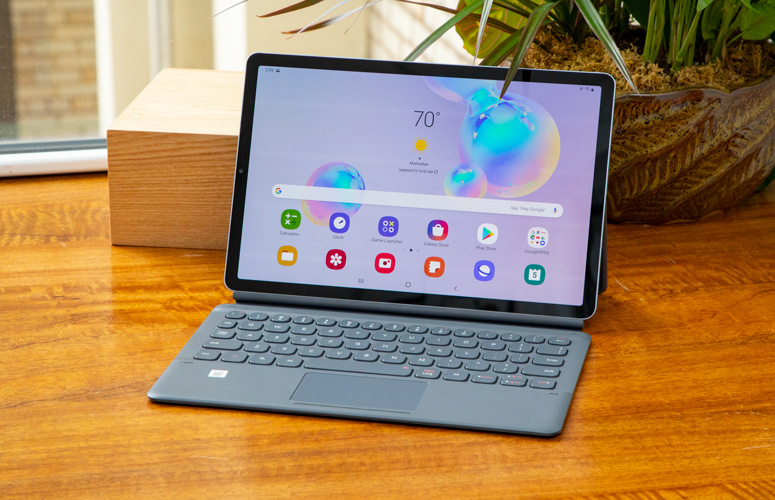
Sign up to receive The Snapshot, a free special dispatch from Laptop Mag, in your inbox.
You are now subscribed
Your newsletter sign-up was successful
Samsung’s Galaxy Tab S is practically the last remaining premium Android tablet lineup on the market now that the iPad has completely dominated the industry while Windows 10 (see Surface Pro 7) and Chrome OS (see Pixelbook Slate) tablets offer users additional choices.
Regardless of the uphill battle Samsung faces, the company has continued to churn out solid options with last year’s Galaxy Tab S6 earning high marks from our reviewer, who called it “Samsung’s best tablet yet.”
- Can't wait for the Galaxy Tab S7? Here are the best tablets in 2020.
- Microsoft Surface Pro 8: Rumors, release date, price and what we want
- The best tablet deals and sales in May 2020
Each year there is some expectation that Samsung will cede the market to Apple. However, after several months of solid rumors, we have gotten a pretty clear picture of the Galaxy Tab S7, and Samsung appears to be shaking things up this year to take on the iPad Pro more directly.
Let’s take a look at everything we’ve heard about the Samsung Galaxy Tab S7 so far along with some of the things we would like to see Samsung bring to the tablet this year.
Samsung Galaxy Tab S7 price and availability
We've seen a few rumors regarding the pricing of the Galaxy Tab S7 now. While the Galaxy Tab S6 enjoyed a $150 price advantage over the iPad Pro, with its starting price at $649 for the Wi-Fi-only model, the rumored specs for the Tab S7 suggest that the price could be going up this year.
Numerous rumors have confirmed that there will be two screen sizes for the Galaxy Tab S7, both larger than previous models. The only strong pricing rumors we have came in British Pounds with the WiFi-only variant of the smaller Galaxy Tab S7 coming in at £629 which would be roughly $799, but it's important to note that the Galaxy Tab S6 was £619 at launch and was $649 here in the U.S. so simply doing the exchange rate math doesn't work. Assuming a roughly similar markup this time around we would expect to see the base Samsung Galaxy Tab S7 anywhere from $659-$679, still over $100 below the base iPad Pro.
The rest of the rumored pricing includes a 4G and 5G Galaxy Tab S7 for £729 ($759-$779) and £799 ($829-$849) respectively. The larger Galaxy Tab S7+, on the other hand, comes in just a WiFi or 5G model at £799 ($829-$849) and £999 ($1,029-$1,049).
Sign up to receive The Snapshot, a free special dispatch from Laptop Mag, in your inbox.
This pricing would align with our general feeling that Samsung must stay below the market-leading iPad Pro, and it would also mirror what we saw with the price hike from the Samsung Galaxy S10 to the Samsung Galaxy S20.

While the company hasn't officially announced the devices that it is launching at its August 5 Galaxy Unpacked event, Samsung has indicated that there will be five new devices. To eliminate any remaining mystery, Samsung even offered an image of the devices in silhouette and they are all pretty much unmistakable. The Galaxy Tab S7 can be seen laying down on the left in front of the Galaxy Buds Live and the Galaxy Watch 3. To the right of it are the Galaxy Fold 2 and finally the Galaxy Note 20.
Samsung Galaxy Tab S7 design and features
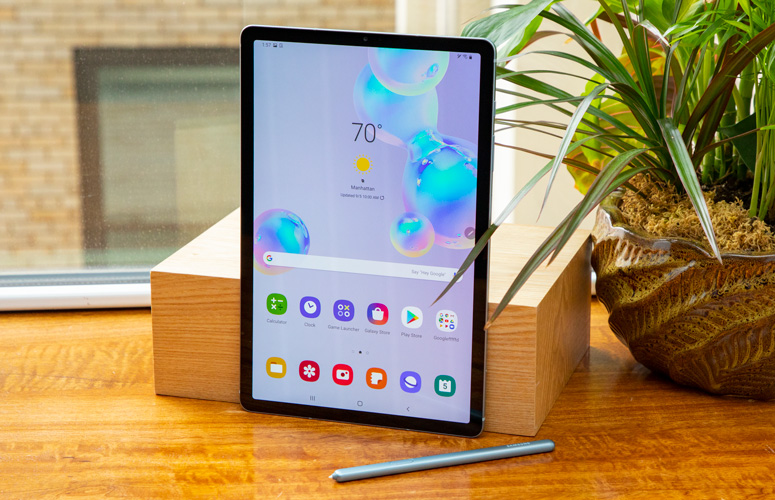
Samsung hasn’t been rocking the boat with the Tab S design recently, with the Tab S6 only offering slight refinements to the Tab S4 design, like the recessed magnetic charging indent for the S Pen.
It may not be the most innovative look, but the Galaxy Tab S line already features a premium aluminum design with some fantastic new color options introduced last year. That matches up favorably with the iPad Pro, and with the internal improvements and increased screen sizes we are expecting along with potential camera upgrades, it would make sense for Samsung to save money by sticking with the same basic hardware design again this year.
The renders below created from dimensions and specifications obtained by often reliable leaker @Onleaks support this idea with minimal changes save for moving the front-facing camera to a more logical landscape orientation rather than portrait.
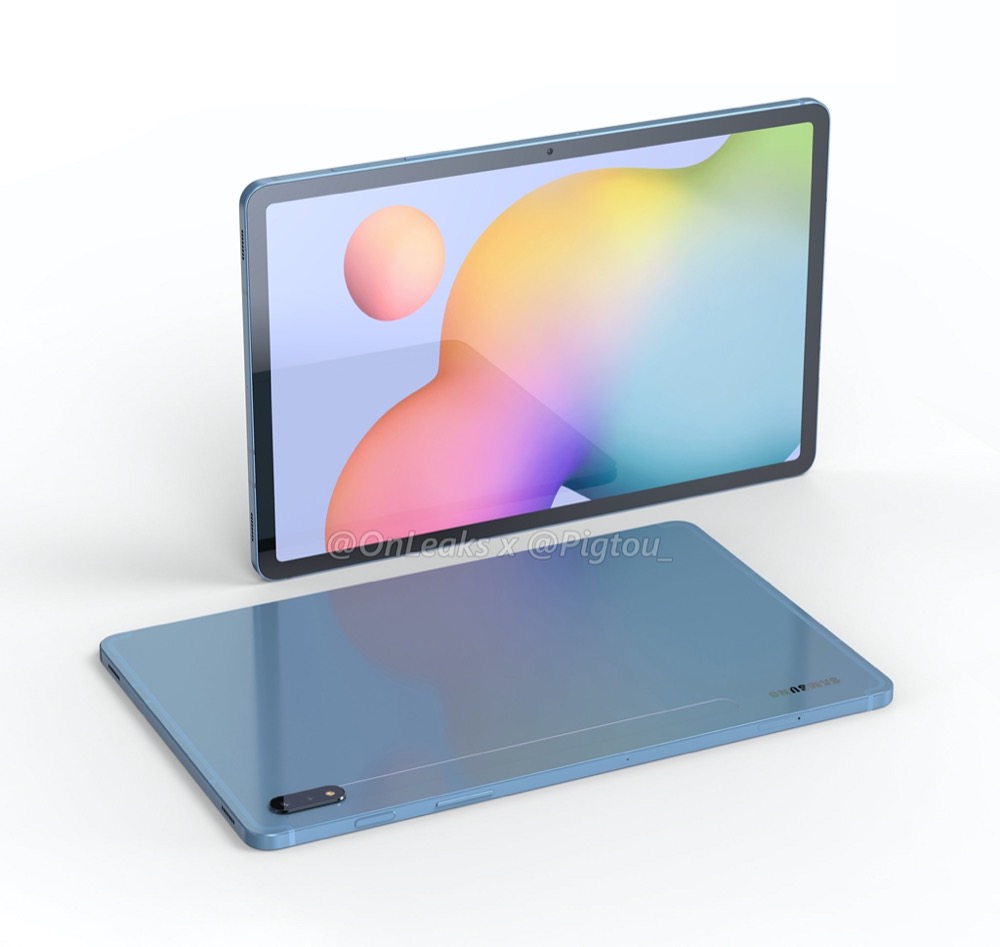
Two standout features for the Tab S7 this year over the iPad Pro should be the inclusion of Wi-Fi 6 and 5G. A certification with the Wi-Fi alliance suggests that the future-proof new wireless specs will definitely be found in the cellular version of the 12.4-inch Tab S7, which may be called the Galaxy Tab S7 Plus.
Support for the inclusion of 5G as an option in both models came from sources for Gizmodo that indicated that the smaller tablet would include distinct WiFi, 4G, and 5G options for various markets, while the larger option would feature only WiFi and a 5G option (which naturally would also support 4G).
Biometric security options are rumored to differ between the two models as well with the Galaxy Tab S7 relying on a fingerprint sensor on the side of the tablet, while the Galaxy Tab S7 Plus will use the more modern in-display sensor.
While we haven’t seen any leaked accessories yet, it's another area we could see Samsung approach this year. With Apple setting a new threshold on both features and cost for a tablet keyboard with its Magic Keyboard for iPad Pro, it’s possible that Samsung looks to up its game from last year’s solid, but pricey, BookCover Keyboard.
Samsung Galaxy Tab S7 specs
As previously mentioned, screen size is one of the rumored spec bumps coming this year. The standard model should go to 11 inches from the 10.5-inch screen of the Tab S6 and a larger model would be introduced for the first time at 12.4 inches, which will naturally draw more iPad Pro comparisons.
While both models are rumored to feature a 120Hz refresh rate, only the larger Galaxy Tab S7 will feature a Super AMOLED display this year with the smaller model moving to an LCD. In the LCD's favor, it will apparently be able to get much brighter than its AMOLED counterpart with 500 nits of brightness versus 420. Far and away the biggest news here is the move to 120Hz for both displays, this leads to a much smoother experience when navigating the tablet and in apps that support it and it is an area where Samsung has been a step behind since Apple's introduction of ProMotion back in 2017.
A recent leak first published by German tech site WinFuture gave us a look at what could be the full specs breakdown for both the Galaxy Tab S7 and Galaxy Tab S7+.
| Row 0 - Cell 0 | Galaxy Tab S7 | Galaxy Tab S7 Plus |
| Display (resolution, refresh rate) | 11 inch LCD, 2560 x 1600, 120 Hz | 12.4 inch AMOLED, 2800 x 1752, 120 Hz |
| CPU | Qualcomm Snapdragon 865 Plus | Qualcomm Snapdragon 865 Plus |
| RAM | 6GB | 6GB |
| Storage | 128GB, 256GB | 128GB. 256GB |
| MicroSD slot | Yes | Yes |
| Rear cameras | 13 MP main (f/2.0), 5 MP ultra wide-angle | 13 MP main (f/2.0), 5 MP ultra wide-angle |
| Front camera | 8 MP (f/2.0) | 8 MP (f/2.0) |
| Battery | 7,040 mAh | 10,090 mAh |
| Colors | Mystic Black, Mystic Bronze, Mystic Silver | Mystic Black, Mystic Bronze, Mystic Silver |
| Size | 9.99 x 6.51 x 0.25 inches | 11.22 x 7.2 x 0.22 inches |
The Tab S line has traditionally used the same chipset as the flagship Samsung smartphones for that year, but this year the Galaxy Tab S7 is getting a slight bump there thanks to the recent release of the Qualcomm Snapdragon 865 Plus. It's not a massive leap from the Snapdragon 865 found in the Galaxy S20 line, but it amounts to approximately a 10% boost to the CPU and GPU.
We expect to see the Galaxy Tab S7 move to 8GB of RAM, with the larger model perhaps going higher as we saw with the Samsung Galaxy S20 Ultra this year, which topped out at 16GB of RAM.
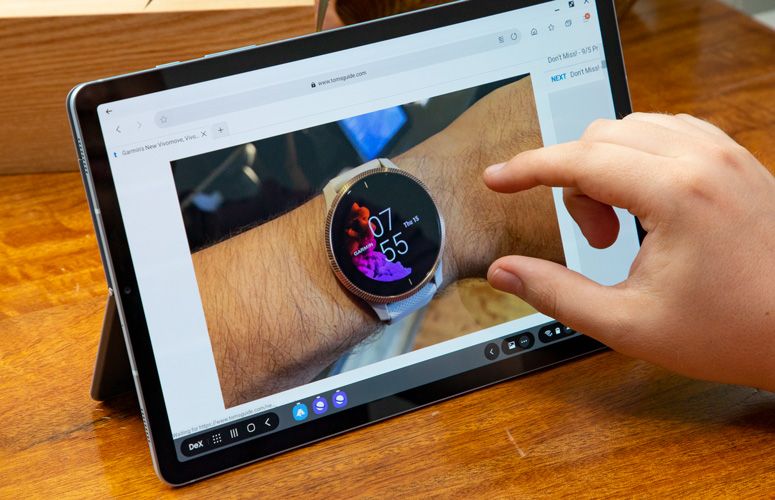
The battery life for the Galaxy Tab S7 should be competitive with rumors placing its battery at 7,040 mAh and 10,090 mAh for the Galaxy Tab S7+. This is roughly on par with the equivalent iPad Pro models, which deliver about 10 hours of battery life.
The charging, on the other hand, has the potential to be a downfall for the Galaxy Tab S7, according to information uncovered by SamMobile, it will only support 15W charging, which is extremely outdated and underpowered when you look at the 45W charging support found in Samsung own Galaxy S20 Ultra smartphone.
The S Pen will certainly still be a part of the Galaxy Tab S7 package, and it is reportedly due for an upgrade this year in the Galaxy Note 20 as well as the Galaxy Tab S7 variants. Unfortunately, the exact nature of these updates is still unknown, some of the most recent additions including Air Actions were seen as a bit gimmicky, but with increased pressure from Apple's Pencil there is ample motivation for Samsung to keep trying to innovate with its stylus.
Samsung Galaxy Tab S7: What we want
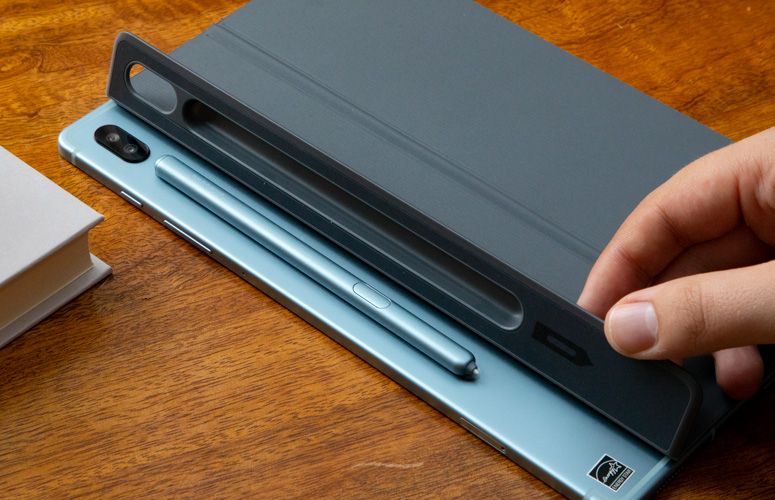
Limited price increase: With the larger screen sizes and Qualcomm Snapdragon 865, there is little question that the price of the Tab S7 is going to go up, but we really hope Samsung manages to rein in the pricing unlike what we saw on the smartphone side this year. Given the iPad Pro’s dominance in the tablet market, there is reason to hope that Samsung will try to keep winning the pricing war.
Higher storage limits: While Samsung’s base offering of 128GB of storage on the Tab S6 is a reasonable starting point, the company should at least offer some higher-end options for a device that is as capable as the Tab S line has become. Ideally, the base model would move to 256GB with a 512GB and 1TB version, but that is likely overreaching.
Brighter display: While it outperformed the average tablet in its category, the Tab S6 fell below even the iPad Air as well as its predecessor, the Galaxy Tab S4, when it came to brightness. We’d like to see Samsung boost this a bit to stay competitive.
Improved keyboard case: The increased screen size of the tablet itself should help to alleviate some of the cramped feeling of the keyboard attachment for the Galaxy Tab S7, but the other feature that needs to be addressed is how it attaches to the tablet, as the sticky back on the previous model simply didn’t cut it.
DeX improvements: With Chromebooks like the budget Lenovo Chromebook Duet horning in on the Android tablet with the more productive Chrome OS onboard, Samsung needs to continue to up its game with DeX to drive the productivity side of the Tab S7 along with its superior creative/media consumption abilities.
Sean Riley has been covering tech professionally for over a decade now. Most of that time was as a freelancer covering varied topics including phones, wearables, tablets, smart home devices, laptops, AR, VR, mobile payments, fintech, and more. Sean is the resident mobile expert at Laptop Mag, specializing in phones and wearables, you'll find plenty of news, reviews, how-to, and opinion pieces on these subjects from him here. But Laptop Mag has also proven a perfect fit for that broad range of interests with reviews and news on the latest laptops, VR games, and computer accessories along with coverage on everything from NFTs to cybersecurity and more.

